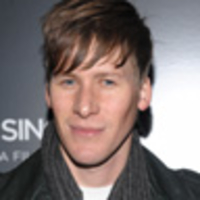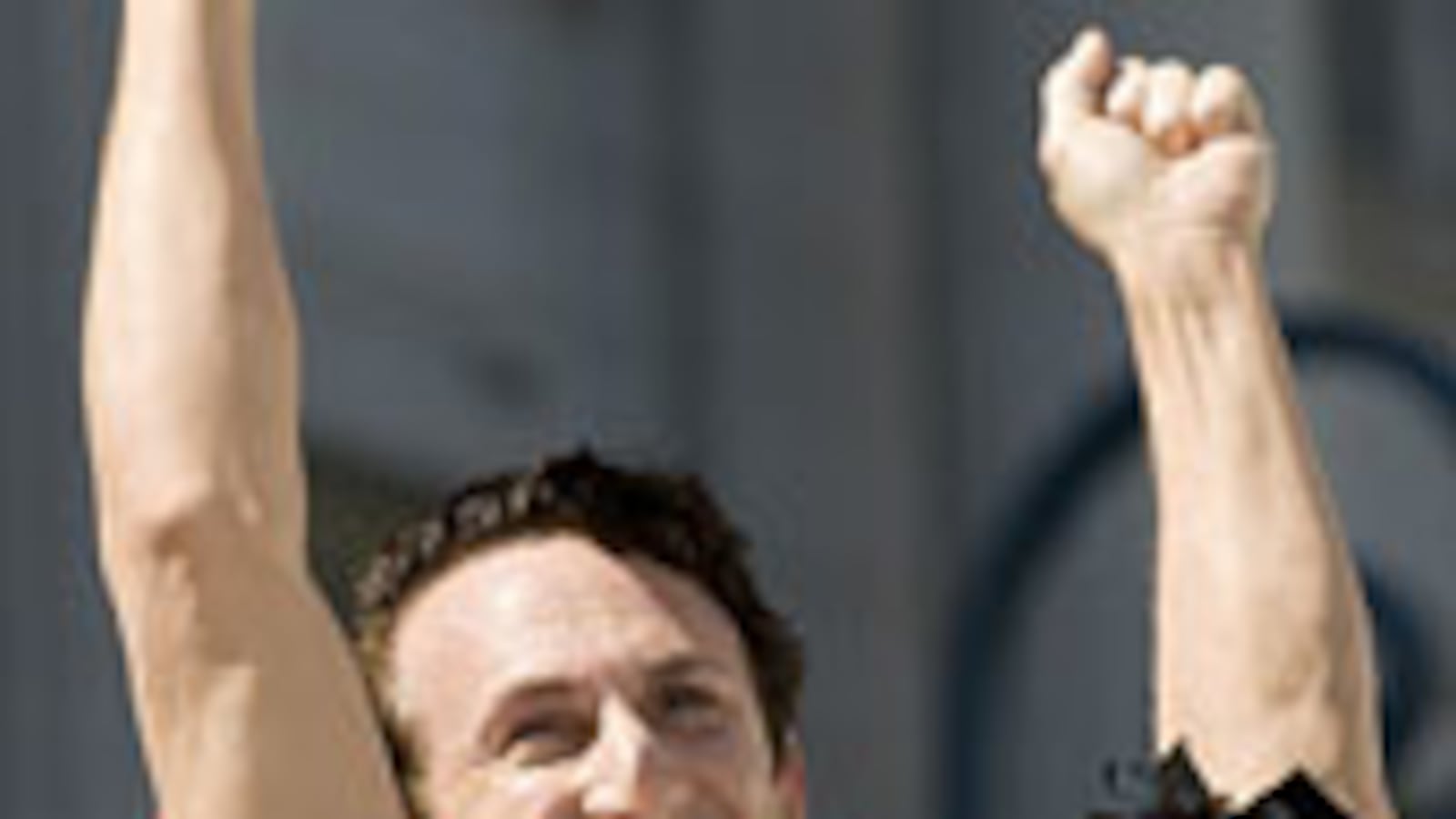
While scouting in West Michigan last spring, I was led to the small city of Holland, a picturesque hamlet with strong Dutch roots, and the place where I would start pre-production on my directorial debut—my first project since Milk. I packed up and moved there last August.
The sun was warm and the reception from the town even warmer. I hadn’t run across such courteous people since I left Texas when I was 13 years old. As I drove down College Avenue, I passed a school. The sign out front read: Hope College. I smiled. I was supposed to be moving on from Milk, the 2008 film in which Sean Penn portrayed early gay-rights pioneer Harvey Milk. But here was Harvey’s favorite word, “Hope,” finding me once again.
They had simply never discussed gay rights openly before, and here I was, an interloper, threatening to thrust this hot-button issue into their community.
Early on, a couple of locals told me the city was one of the most conservative voting districts in the country, and that Hope College, a Christian institution, was the heart of the city. It was built four years after Dutch immigrants seeking religious freedom settled along Lake Macatawa in 1846. Since then, the school has remained strongly tied to the Reformed Church in America. Like most places in town, the campus was crisp, clean, and filled with a Holy Spirit and devotion I hadn’t felt since my childhood in the Mormon Church. Perhaps surprising to some, I felt quite at home.
Just beyond campus, I spotted the town’s sole late-night coffee shop. It was packed with neatly combed, mostly blond, well-spoken Hope College students. I settled in with my laptop, but soon felt a pair of eyes on me. They belonged to a student who, shattering the city’s 1950s mirage, was dressed in short shorts and a “Legalize Gay” T-shirt. Within minutes he was at my table, asking if I would screen Milk and speak on his campus. I thought, “I’m about to call Holland home for six months. I should probably pitch in.”
Production began, and though I was busy I occasionally wondered, “Why haven’t they confirmed that screening date yet?” The answer came soon enough. Four weeks into shooting, I walked into my now-favorite coffee shop and saw the local paper’s front-page headline: “Filmmaker Receives Mixed Welcome from Hope.” The story said I had been banned from screening Milk and was officially not welcome on Hope College’s campus. The dean of students wasn’t shy about it. He called my brand of “advocacy” hurtful to the student body. Without ever meeting me in person, without so much as a phone call, he had publicly declared me and Milk unholy and unwelcome.
What had started as a wide-eyed adventure to bring Harvey Milk back to life had taken a darker turn since my Oscar acceptance speech appeared and re-appeared on Oprah, The View, and The O’Reilly Factor. Anti-gay letters, emails, and attacks had begun, and now, here in West Michigan, I had met the same fate as many of my favorite writers: I was banned. Naïveté was gone. My education had begun. Between the apologetic handshakes were glares from unknown locals. The politeness I’d come to admire was lifted up, revealing hidden enmity.
But let me be clear: I don’t think the town was homophobic. I think they had simply never discussed gay rights openly before, and here I was, an interloper, threatening to thrust this hot-button issue into their community. As the dean kept talking and students began protesting, calls came from journalists in Los Angeles, San Francisco, and New York. I did my best to stay focused, wrap up production, and in the end, decided to move my editing room out of West Michigan.
But that’s not how the story ends. Two weeks ago, in blizzard conditions, a Delta pilot landed on a snowy runway in Grand Rapids, and I drove the half hour from the airport to Holland, watching SUVs slide into ditches in front of me. With five minutes to spare, I arrived at the Park Theater off Main Street, right across from the steeples of Hope College.
Why had I made the journey back? Because when I decided I needed to set things right with the people of Holland who had been so welcoming, I called that same student who had come up to me in the coffee shop months ago, and we decided not to take “no” for an answer.
He organized a new group called “Hope Is Ready,” and raised funds from local city leaders who had never taken a stand on gay rights before, but in the face of Hope’s now widely publicized homophobia, decided to put their quiet courtesy aside (most for the first time), and donated time, money, and space to do what Hope wouldn’t: have this conversation.
The theater sold out in an hour. We booked a second night at a larger venue and it, too, filled up. As the film wrapped up, Harvey called out from the screen: “You gotta give ‘em HOPE. You gotta give ‘em HOPE.” And for the first time, those words meant something very different to me. They meant, as we fight for equality in California and New York, we can’t forget about those kids out there in small-town America, in the Hollands or Hope Colleges. Their lives are too valuable.
When the lights came up, it became clear the audience was almost entirely students and faculty from Hope College. And it wasn’t just gay people who stood up and told their stories at the Q&A afterward; it was minorities of every kind. I was transported back to the early ‘70s, when Harvey first arrived in San Francisco and started building coalitions with other minority groups. Here it was, happening right before my eyes: coalition-building, outreach, education. Yes, Holland is behind when it comes to LGBT issues, but that night was a turning point.
And the next morning, for the first time, the dean of Hope College called me. As long as there was no one else around to witness it, he wanted to meet.
A tall, white-haired man waved to me from under the marquee of another local theater. It had warmed up to 20 degrees. I was shivering; he was braver about the weather. This was the man who had banned my film and lecture, and denounced me to reporters. Now he was responsible for my return. Without him, I likely would have spoken to a handful of students on campus, the event would have gone largely unnoticed, and the long-needed dialogue that had taken place the night before would never have happened. Gay people in Holland had this man to thank.
What struck me immediately was his referring to me as “you people.” I asked him to clarify, and he hesitantly said, “gay people.” He claimed it was “my people” who had been attacking him since the news broke, though all of the complaints I’d read in the papers had come from straight people in his own community. But I didn’t argue that. Instead, I asked that he get to know gay and lesbian people individually instead of lumping us together, stereotyping. He agreed, but again used that phrase: “You people.” When I asked him to clarify again, he said, “You Hollywood people.” I assured him that, like gay people, Hollywood folks are also a diverse bunch. But it popped out again: “You people.” This time he wasn’t talking about Hollywood or gay people—this time it was “California people.”
It became clear the problem here wasn’t gay people or Hollywood people or people from California. The problem was a fear of “other” people, people from different worlds or with different viewpoints. I was reminded of Harvey Milk who claimed the war against homophobia was a war against fear. Fear of the unknown. Fear of what is different.
So when the dean asked what we could do to move past this, the answer was clear. Fear and understanding can’t coexist. One devours the other. Students at his college had formed a Gay-Straight Alliance some time ago, but he had refused to recognize it. I told him it was time to officially support that group and allow a dialogue between gay and straight people on his campus. Because as Harvey Milk said so long ago, telling our personal stories is the only way to educate, to reach out and dispel those myths and fears that this dean was still holding onto.
He didn’t promise to do so… but he never said no.
As I drove back to the airport, I knew full well these students and this town had their work cut out for them. The road will be long and rough, but the conversation had finally begun, and to me, it was clearer than ever that Harvey’s brand of hope will soon be reality at places like Hope College.





